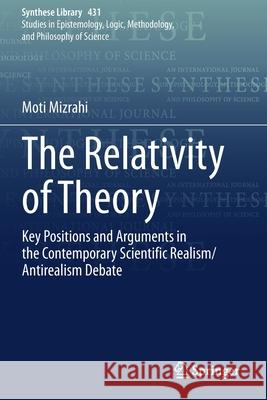The Relativity of Theory: Key Positions and Arguments in the Contemporary Scientific Realism/Antirealism Debate » książka
topmenu
The Relativity of Theory: Key Positions and Arguments in the Contemporary Scientific Realism/Antirealism Debate
ISBN-13: 9783030580490 / Angielski / Miękka / 2021 / 180 str.
The Relativity of Theory: Key Positions and Arguments in the Contemporary Scientific Realism/Antirealism Debate
ISBN-13: 9783030580490 / Angielski / Miękka / 2021 / 180 str.
cena 361,42
(netto: 344,21 VAT: 5%)
Najniższa cena z 30 dni: 346,96
(netto: 344,21 VAT: 5%)
Najniższa cena z 30 dni: 346,96
Termin realizacji zamówienia:
ok. 22 dni roboczych.
ok. 22 dni roboczych.
Darmowa dostawa!
Kategorie BISAC:
Wydawca:
Springer
Język:
Angielski
ISBN-13:
9783030580490
Rok wydania:
2021
Ilość stron:
180
Waga:
0.26 kg
Wymiary:
23.39 x 15.6 x 0.97
Oprawa:
Miękka
Wolumenów:
01
Dodatkowe informacje:
Glosariusz/słownik
Wydanie ilustrowane
Wydanie ilustrowane











